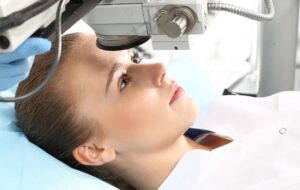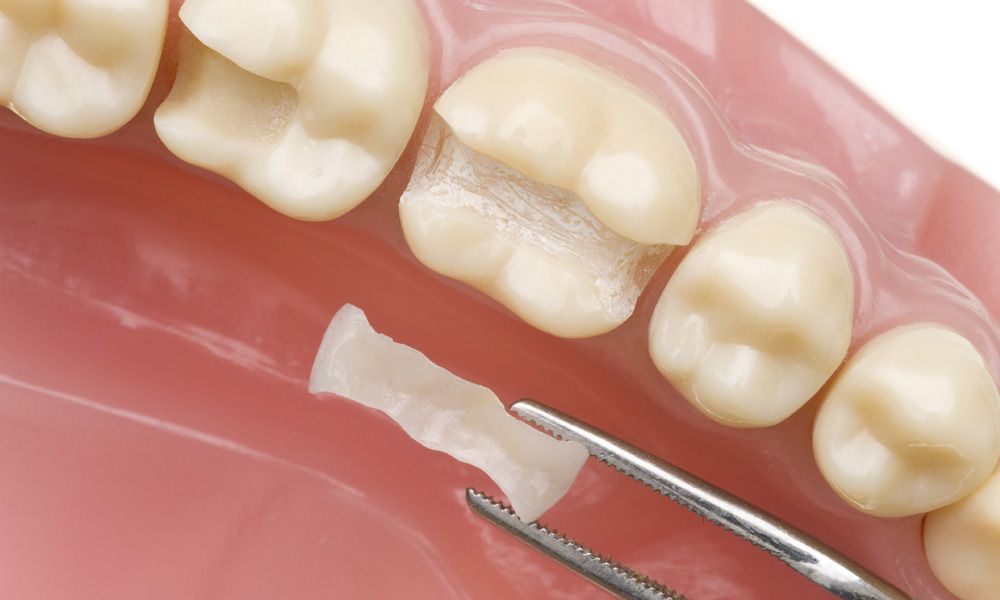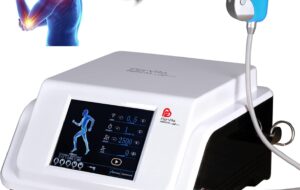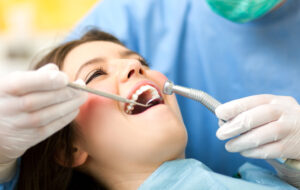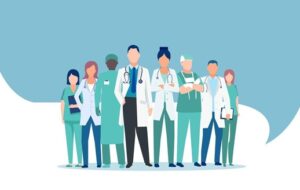Prioritizing our health is important, but access to effective medical attention is not always easy. With so many healthcare professionals available, it can be difficult to determine which is best suited to our needs. In this article, we will explore the differences between seeing a nurse versus a doctor and what scenarios warrant one over the other, for example a medical emergency or ongoing healthcare needs.
What are the differences between a doctor and a nurse practitioner?
Different professionals provide the necessary care to patients. Two of the most common medical professionals are doctors and nurses. Although both may provide medical care, they differ in several ways. Let’s take a closer look at what sets these two professionals apart.
What is a nurse?
A nurse is a healthcare professional who has completed a nursing program and obtained a nursing degree. They also pursue advanced degrees such as a Master of Science in Nursing (MSN) or a Doctor of Nursing Practice (DNP). Nurses are responsible for providing patient care, monitoring patient health, administering medication, and providing emotional support to patients and their families.
They work closely with doctors and other healthcare professionals to provide comprehensive patient care. Nurses may also be trained to diagnose and treat certain conditions and may complete residencies in specialties to gain additional expertise. They work in various settings, including hospitals, clinics, and long-term care facilities, and play a critical role in ensuring patients receive high-quality care.
What is a doctor?
A doctor is a healthcare professional who has completed medical school and typically completes a residency program, where they work alongside experienced doctors in a hospital. Doctors can work in various settings, such as hospitals, clinics, private practices, and research facilities. While doctors are responsible for overseeing a patient’s care, they work with other healthcare professionals, including nurses and therapists, to provide comprehensive care that improves patients’ health and quality of life.
Education for doctors and nurses
Nurses and doctors undergo a rigorous process to prepare for their careers in healthcare. However, the paths they take to get there can differ significantly. Both doctors and nurses will undertake a residency during their undergraduate degrees. While nurses study for their primary degree for three years, doctors usually study for four. Nurses will often complete clinical rotations and gain practical experience during their degree program, followed by a residency in a hospital or other healthcare setting. This residency typically lasts one to two years and provides nurses with additional training and experience in their specialty.
During their residency, nurses work under the supervision of experienced nurses and doctors and learn important skills such as patient care, medication administration, and communication. They also gain hands-on experience with patient assessments, diagnoses, and treatment plans. After completing their residency, nurses may pursue additional education or certifications in their specialty area. Nurses can also pursue advanced degrees, such as an MSN or DNP. These programs provide nurses with additional training in leadership, healthcare policies, and advanced clinical practice.
Some nurses wonder why get a DNP? There are several benefits of an advanced degree, such as the course offered by Marymount University. For one, it can lead to higher salaries and greater job opportunities. It can also give nurses the skills and knowledge to handle more complex patient cases and provide higher patient care. If you an individual is interested in advancing their career in nursing, becoming a leader in healthcare, or improving patient outcomes, a DNP degree may be a good choice for them.
The roles of doctors and nurses
Nurses are often the first point of contact for patients and their families and provide emotional support, education, and advocacy for patients. Nurses have a unique role in healthcare, and their contributions are invaluable. They are trained to provide holistic care, which focuses on treating the whole person, not just their illness or injury. They also have specialized training in areas such as patient education, wound care, medication management, and symptom management. These skills and knowledge enable nurses to provide high-quality care that helps patients recover and maintain their health.
Although doctors typically have more extensive education and training than nurses, they need to work hand in hand with nursing professionals to provide coordinated and comprehensive care.
Roles of a nurse
Nurses are a vital component of the healthcare system, providing care and support to patients in various settings. They are the backbone of the healthcare system, from hospitals and clinics to long-term care facilities and home health agencies. Within the nursing profession, there are several different roles, each with unique responsibilities and requirements.
These roles include matrons, ward nurses, sisters, and more. Matrons are senior nurses who oversee a group of nurses and ensure patients receive high-quality care. Ward nurses work directly with patients, providing primary care and monitoring their conditions. Sisters are specialized nurses with additional training and responsibilities, such as managing a particular unit or service. In this section, we will explore the various roles of nurses and the important contributions they make to the healthcare system. These contributions may include:
- Providing direct patient care, including assessing patient health, administering medication, and monitoring vital signs.
- Collaborating with other healthcare professionals, such as doctors, therapists, and social workers, to provide comprehensive patient care.
- Educating patients and their families about health conditions, treatment options, and ways to prevent illness and injury.
- Advocating for patients’ rights and ensuring that their healthcare needs are met.
- Managing patient records and ensuring that they are accurate and up to date.
- Participating in research studies and quality improvement initiatives to improve patient outcomes and healthcare practices.
Roles of a doctor
The roles of a doctor may include:
- Diagnosing and treating illnesses and injuries, including ordering and interpreting diagnostic tests, prescribing medication, and performing medical procedures.
- Managing chronic health conditions, such as diabetes, heart disease, and cancer.
- Collaborating with other healthcare professionals, such as nurses, pharmacists, and therapists, to provide comprehensive patient care.
When to see a nurse
Nurses are an essential part of the healthcare system and can provide care and support for a wide range of health concerns. While doctors typically handle diagnosis and treatment, nurses can provide ongoing care, education, and support for managing various health conditions. So, when is it appropriate to see a nurse?
Managing chronic conditions
Those that have a chronic condition such as diabetes, heart disease, or asthma, will find that it is important to work with a nurse to manage the condition. Nurses can help with medication management, provide education on self-care, and monitor symptoms to ensure the condition is well-controlled. They can also help their patients make lifestyle changes to improve their health, such as quitting smoking, exercising more, or improving their diet.
Recovery from injury or surgery
A nurse can help a patient manage their recovery and ensure they are healing properly if they are recovering from an injury or surgery. They can assist with wound care, monitor vital signs, and provide support as they work to regain strength and mobility. Nurses can also provide education on how to prevent complications and how to manage pain and discomfort.
Mental health support
A nurse can provide support and resources to help a patient manage their condition if they are struggling with a mental health ailment such as depression, anxiety, or addiction. They can connect their patient with mental health professionals and provide education on coping strategies and self-care techniques. Nurses can also provide support for family members or caregivers who may be impacted by the condition.
Guidance and navigation of healthcare system
If an individual has questions or concerns about their health, a nurse can provide guidance and help them navigate the healthcare system. They can provide information on preventive care, screening tests, and healthy lifestyle choices. Nurses can also help patients find resources in their community, such as support groups or local clinics.
When to see a doctor
Knowing when to see a doctor is essential to maintaining good health. While some medical conditions can be treated by a nurse or at home with rest and self-care, others require prompt and extensive medical attention. In these cases, knowing when to see a doctor is important.
Some common symptoms that require medical attention include severe pain, high fever, persistent cough, shortness of breath, chest pain, abdominal pain, and unexplained weight loss. These symptoms may indicate serious underlying medical conditions, such as infections, cancer, or heart disease, that require immediate medical attention.
It is also important to seek medical attention for any changes in health or well-being, even if the individual is not experiencing any symptoms. Regular check-ups with a doctor can help identify potential health risks and prevent the progression of chronic diseases. Routine screenings, such as blood pressure checks, cholesterol tests, and cancer screenings, are recommended for people of all ages to ensure early detection and treatment of any potential health problems.
If a nurse or other healthcare professional refers a patient to a doctor, it is important that they follow their advice. The nurse may have noticed something during an exam or test that requires further evaluation. For example, if a patient has a routine mammogram and a lump is detected, their healthcare provider may refer them to a specialist for further evaluation. It is important that the patient takes any referrals seriously and follows up with the recommended healthcare provider.
What is accessible healthcare?
Accessible healthcare refers to medical services and resources that are available and affordable to all individuals, regardless of their socio-economic status, location, or other barriers. This includes having access to a range of medical professionals, affordable health insurance, and culturally responsive care that meets the specific needs of different populations. The goal of accessible healthcare is to improve health outcomes and reduce health disparities. Here are some examples.
Telehealth and virtual care
With the advancement of technology, telehealth, and virtual care have become popular ways to deliver healthcare services to patients who cannot physically visit a healthcare facility. This includes virtual consultations with doctors, remote monitoring of patients with chronic conditions, and digital health apps to manage health and wellness.
Mobile clinics and pop-up clinics
These clinics are typically set up in areas with limited access to healthcare, such as rural or low-income communities, and offer a range of medical services and resources.
Community health workers
Community health workers provide accessible healthcare to underserved communities. These individuals are often members of their communities and are trained to provide a range of healthcare services, including health education, disease prevention, and basic medical care.
Urgent care clinics
Urgent care clinics provide non-emergency medical care on a walk-in basis, often outside regular business hours. They are often more affordable and accessible than traditional emergency departments and can provide medical care for many non-life-threatening conditions.
Retail clinics
Retail clinics are often located in pharmacies, grocery stores, or other retail settings and provide basic medical services such as vaccinations, physical exams, and treatment for minor illnesses and injuries. They are often more affordable and convenient than traditional healthcare facilities.
Free clinics
Free clinics provide medical services to uninsured and underinsured individuals who may not otherwise have access to healthcare. These clinics are typically staffed by volunteer medical professionals and offer various medical services and resources, including preventative care, screenings, and basic medical treatment.
Conclusion
Access to healthcare is of the utmost importance in today’s world, and choosing the right medical professional is important for receiving adequate care. When making this decision, it is essential to carefully consider various factors and ensure that the medical professional is easily accessible and that their practice is conveniently located.
By doing proper research and making an informed decision, individuals can ensure they receive the best care for their health needs. Remember, choosing the right medical professional is vital to accessing high-quality healthcare services to improve quality of life.



